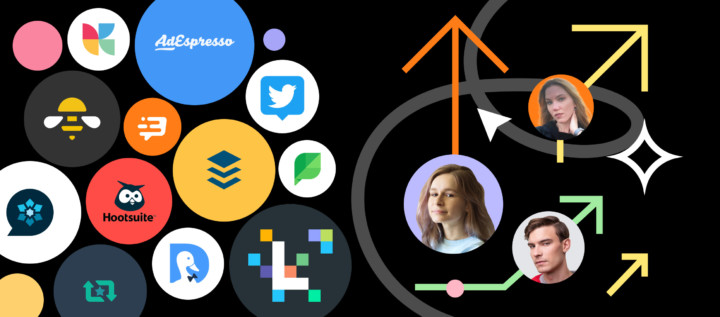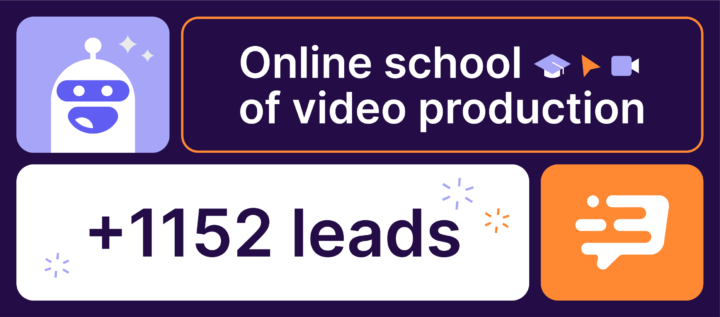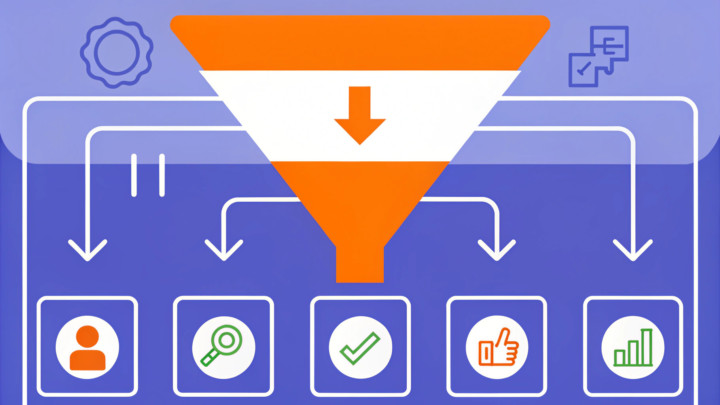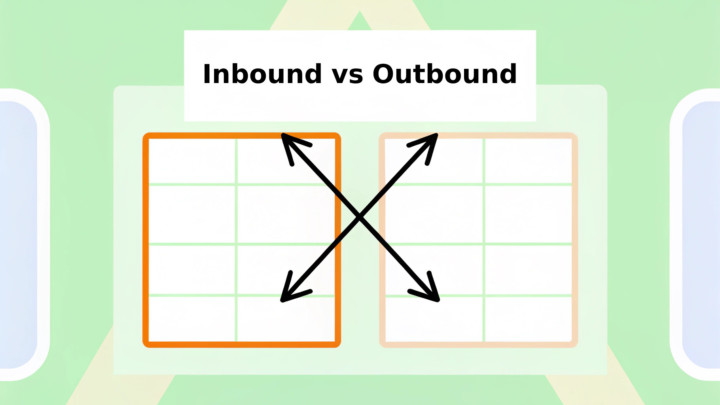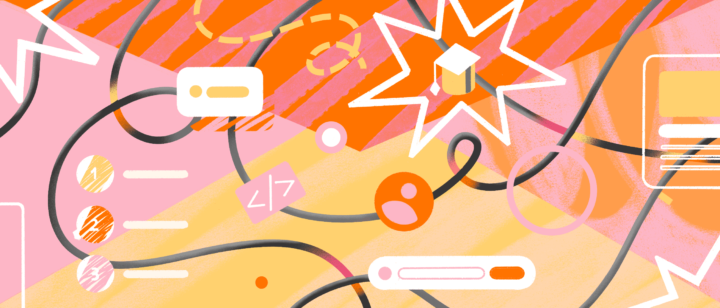What is B2B AI marketing solution? A comprehensive overview
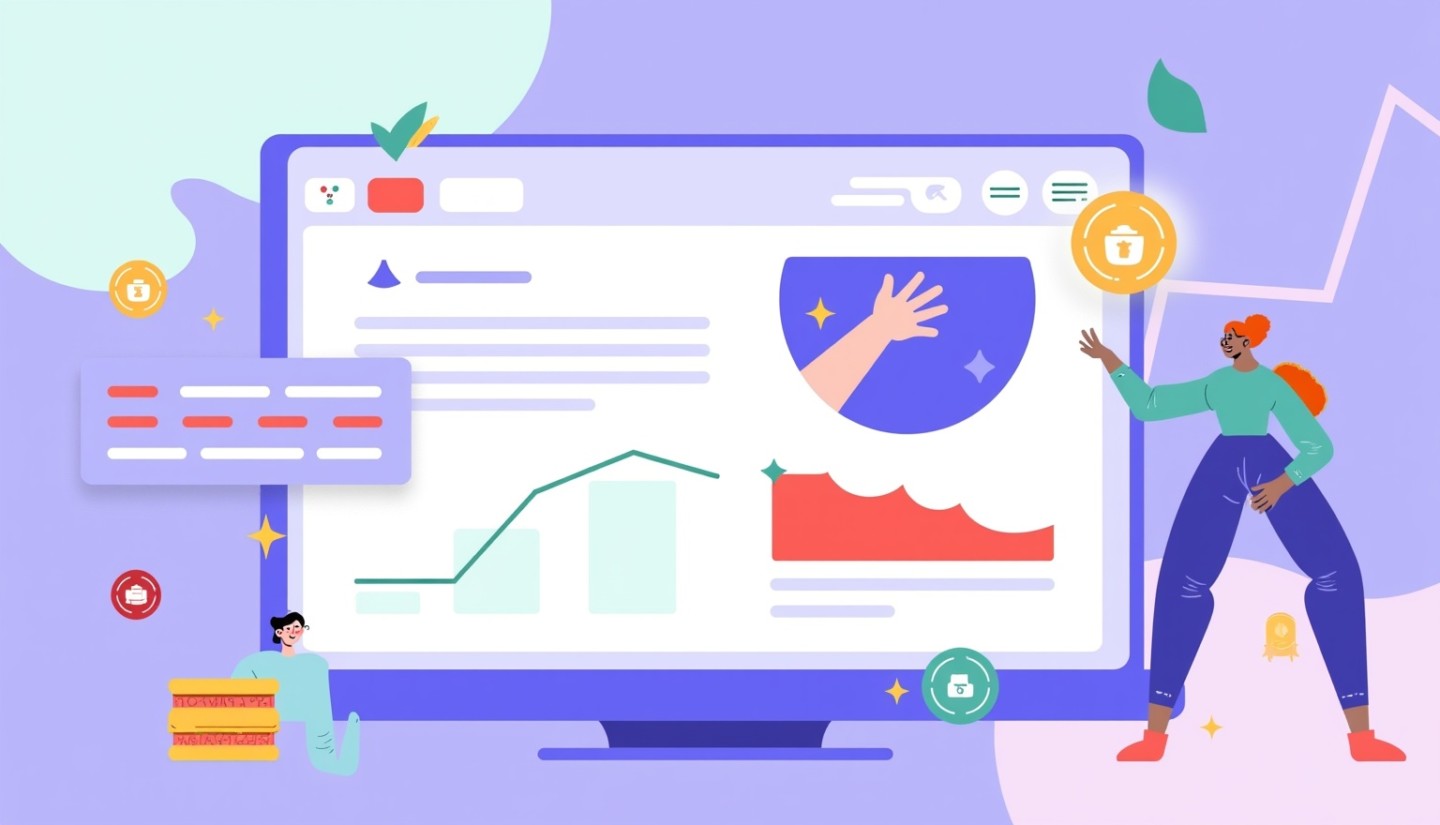
The world of B2B marketing is in the middle of a seismic shift. Artificial intelligence isn’t just the shiny new thing — it’s a force that’s fundamentally changing how businesses connect with customers, run campaigns, and drive growth.
This isn’t about doing old things slightly better. It’s about doing things differently, from the ground up. AI is giving marketers tools to personalize at scale, optimize strategies, and find efficiencies that were unimaginable just a few years ago.
Projections say AI adoption among B2B marketers will soar by 35% in 2024. The message is clear: if you’re not thinking about how to integrate AI into your marketing stack, you’re already falling behind.
Let’s break down what’s happening, the tools driving the change, and how you can navigate the opportunities and challenges ahead.
Defining B2B AI marketing solutions: An overview
At its core, B2B AI marketing is about leveraging cutting-edge technology to supercharge your campaigns, operations, and customer interactions. We’re talking about algorithms that don’t just analyze data — they make it actionable.
Think of AI as a toolkit that sharpens everything you do: audience targeting, campaign performance, even how you communicate with prospects. But here’s the twist: while AI helps automate and streamline, it can’t replace the human touch. According to a survey, 90% of consumers still prefer human interaction over chatbots.
This isn’t a contradiction; it’s a reminder. AI needs to complement human efforts, not replace them. Google’s John Mueller said it best: use AI not just for automation but for inspiration and experimentation.
And companies are catching on. A recent BCG study shows how AI is becoming a non-negotiable for staying competitive. Personalization, faster service, smarter decisions — these aren’t nice-to-haves anymore. They’re the baseline. If you’re not adapting, you’re fading.
Here’s what’s coming: a world where younger buyers expect AI to transform their experience. A 2023 study showed that personalization and better service top the list of what Gen Z and Millennials want from AI-driven solutions. Ignore that shift, and you’ll lose relevance.
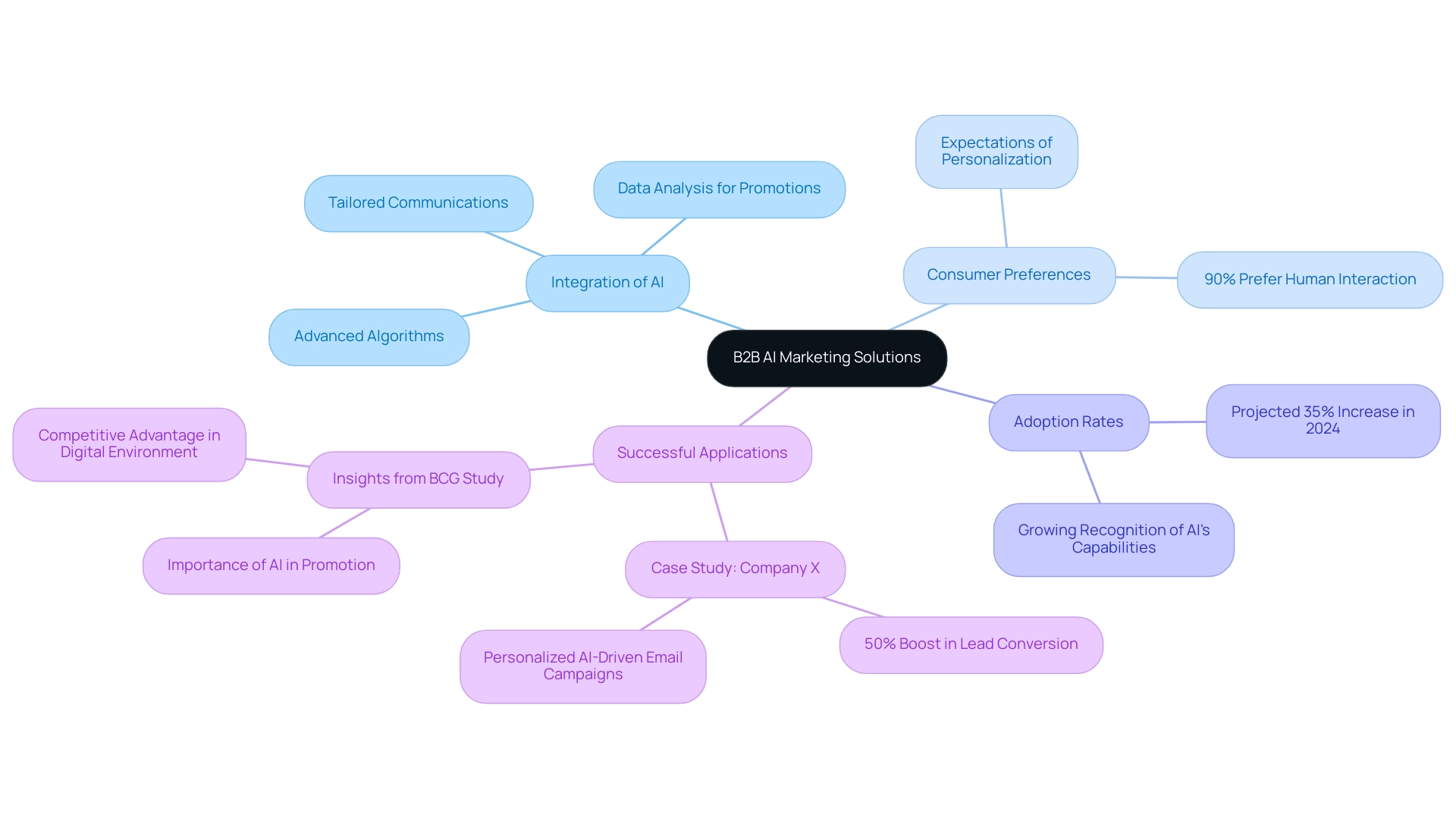
Key AI tools transforming B2B marketing strategies
AI isn’t one thing — it’s a collection of tools that each solve a piece of the puzzle. Let’s look at four game-changers:
- Chatbots
Chatbots might be AI’s most visible success story. They’re fast, efficient, and never sleep. Got a prospect with a quick question at 3 a.m.? The bot’s got it covered. But here’s the rub: remember that 90% of people still prefer humans.
Smart companies are blending bots with human support, striking a balance that delivers speed without losing trust. - Predictive Analytics
Imagine knowing what your customers will want before they do. Predictive analytics takes historical data, crunches the numbers, and tells you which leads are worth pursuing — and how to close them.
Example? XYZ Corp used predictive analytics and saw a 25% jump in lead conversions. That’s not theory; that’s results. - Email Marketing Automation
Forget one-size-fits-all campaigns. AI tools like Dashly and HubSpot use customer data to create highly personalized emails that land at just the right moment. In 2024, personalization isn’t a trend — it’s table stakes. - Content Generation
Need expert-level blog posts or punchy social media updates? AI platforms like Jasper can crank out tailored content faster than ever. The best part? It’s good. In fact, 82% of marketers believe AI-generated content rivals what humans create.
Leading Use Cases for AI and Automation According to Marketers Worldwide 2023 emphasizes that marketers are increasingly employing AI for audience segmentation, predictive analytics, and tailored promotion. By integrating these AI tools, B2B companies can refine their promotional strategies, enhance customer engagement, and achieve improved overall results.
As the B2B promotional landscape evolves, leveraging AI technologies is becoming essential for sustained success. John Mueller of Google emphasizes that businesses should harness AI not just for automation but also for inspiration and experimentation, further underscoring the multifaceted role of AI in contemporary promotion.
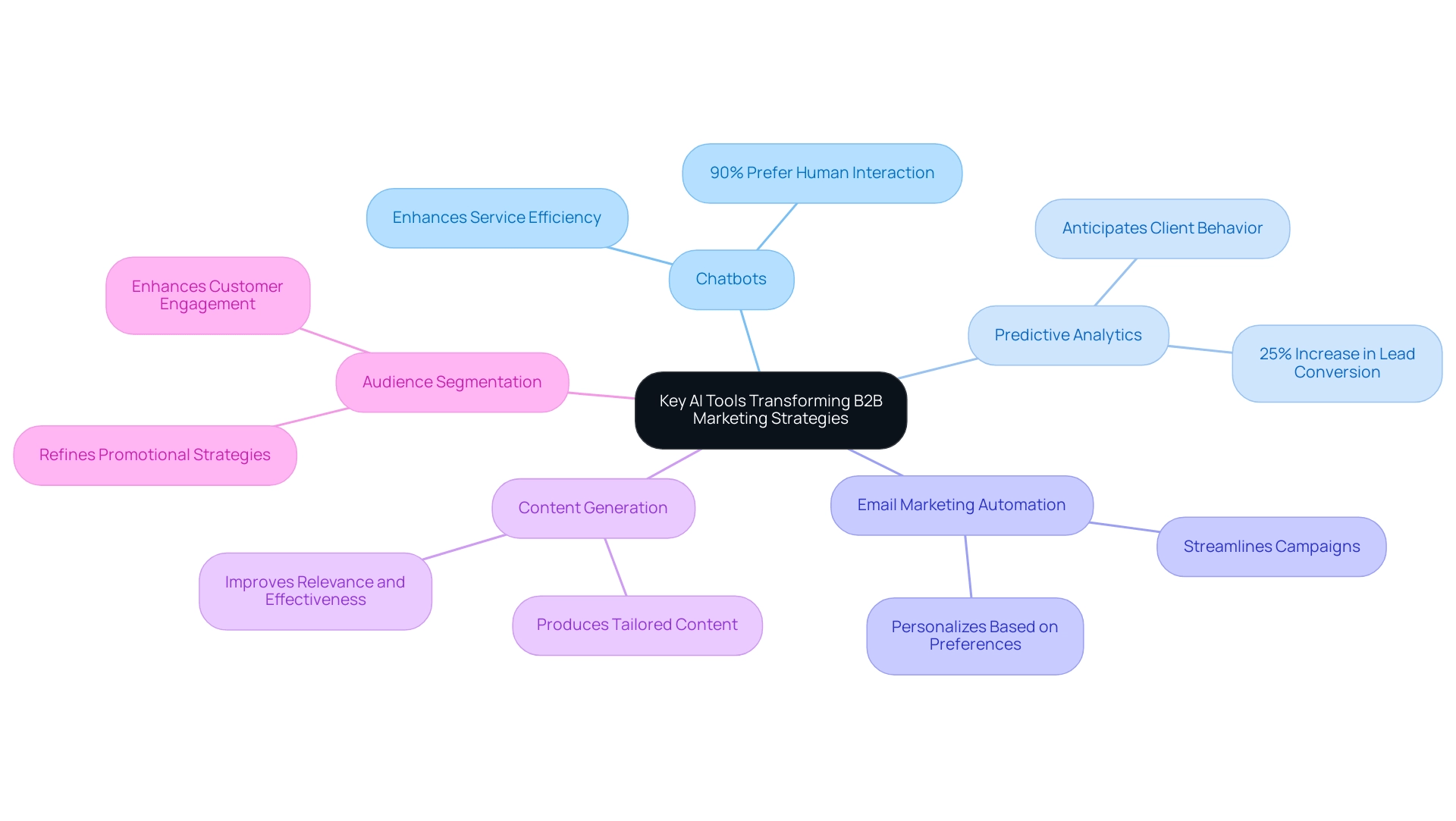
The impact of AI on customer engagement in B2B marketing
If there’s one word for what AI does best in customer engagement, it’s personalization. Forget generic messages. AI helps you craft communications so tailored, they feel like a one-on-one conversation.
Take OpenText as an example. They revamped their digital experience and saw a 10% jump in engagement. That’s what happens when AI combines data analysis with thoughtful messaging.
Dashly takes this one step further. By automating lead nurturing campaigns through personalized email sequences, Dashly ensures leads don’t fall through the cracks. Whether it’s confirming meetings, encouraging quiz completion, or nudging undecided prospects, Dashly drives a 55% conversion rate from email opens to scheduled meetings. This ensures every touchpoint builds stronger connections.
Here’s another win: chatbots. They’re not just for answering FAQs anymore. Today’s AI-driven bots can guide a customer from their first inquiry to the final sale.
But personalization doesn’t stop there. AI can analyze purchase history and recommend products that hit the mark. It’s the difference between a scattershot approach and a sniper shot.
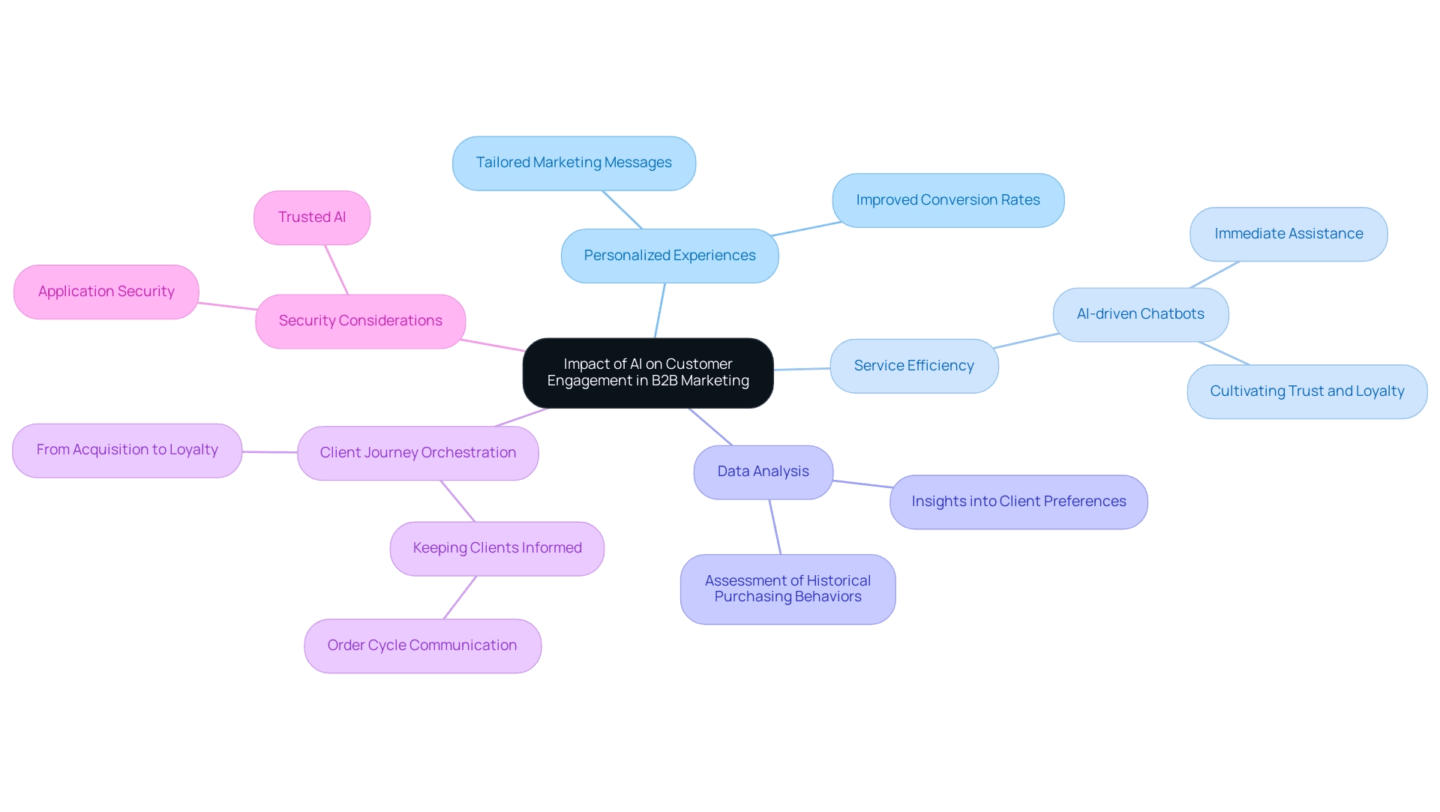
Challenges in Implementing B2B AI Marketing Solutions
Let’s be real — AI isn’t a magic wand. For all its potential, adoption isn’t always smooth sailing.
Integration is often the first hurdle. Legacy systems weren’t built with AI in mind, and plugging in new tools takes time and money.
Then there’s employee resistance. AI sounds intimidating to teams used to traditional methods. Training is key here, but most companies are dropping the ball: 70% of employees say they haven’t received any training on generative AI.
Finally, data privacy is a biggie. Customers need to know their data is safe. Strong governance isn’t optional; it’s essential.
Dashly helps tackle these challenges with solutions that fit seamlessly into existing workflows. By automatically categorizing leads and syncing data with CRMs, Dashly reduces manual effort and boosts team efficiency. Its reliable forecasting metrics — like a 99% success rate in meeting goals — also help teams build trust in AI-driven systems.
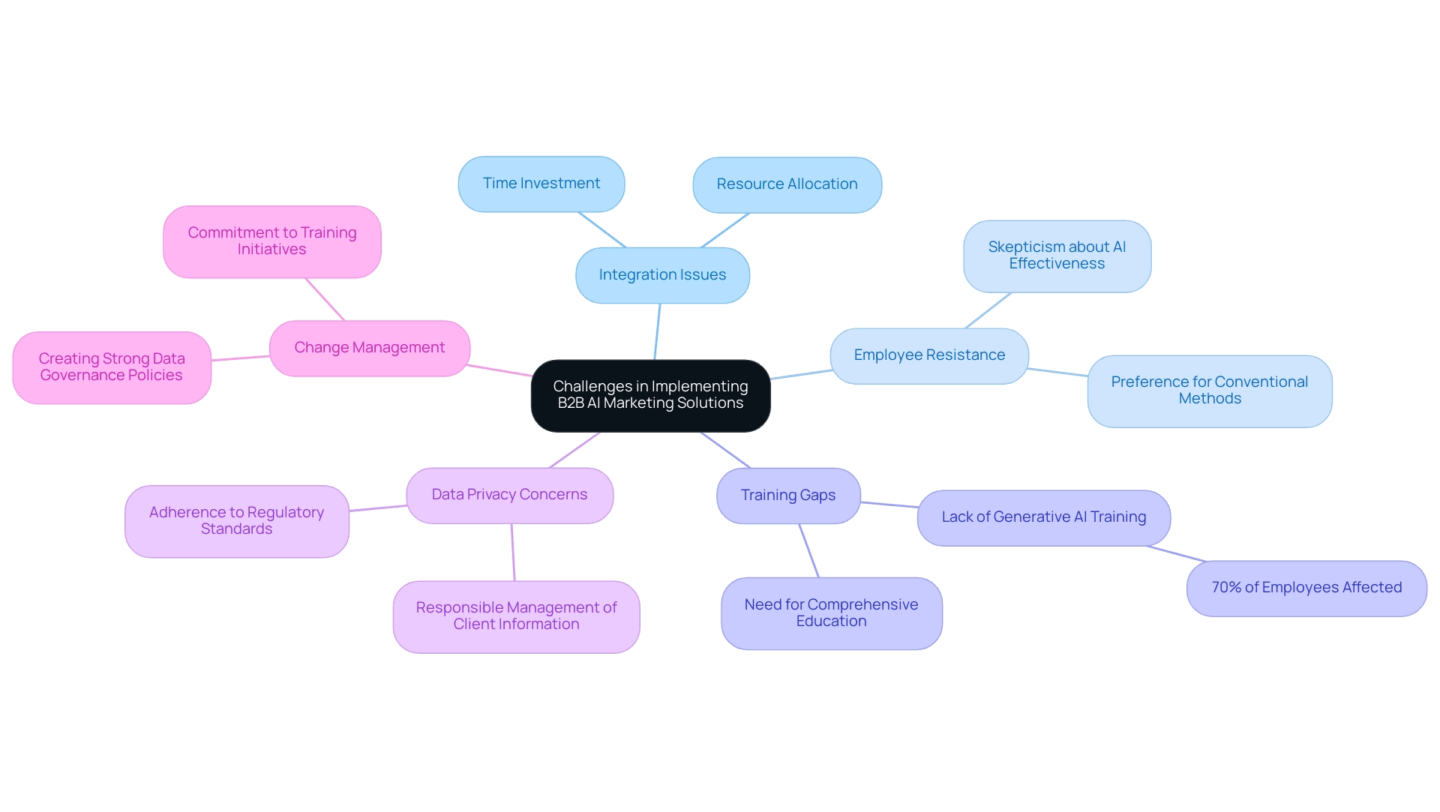
Future trends in B2B AI marketing solutions
The trajectory of B2B AI promotional solutions is on the brink of transformative advancements, driven by ongoing technological evolution. A significant trend is the increasing use of machine learning algorithms, which enable companies to obtain deep insights into consumer behavior, thereby aiding in highly tailored promotional strategies.
Furthermore, the convergence of AI with emerging technologies like augmented reality (AR) and virtual reality (VR) is poised to transform user interaction through immersive promotional experiences. As AI capabilities progress, businesses can expect significant enhancements in predictive analytics, allowing for more accurate anticipation of customer needs and market trends.
In fact, a recent survey reveals that:
- 43% of marketers recognize AI’s role in expediting the content creation process, underscoring its value in contemporary promotion.
- 82% of marketers believe AI-generated content is as good as human-generated content, highlighting the growing trust in AI’s capabilities.
For B2B companies, embracing these future trends is essential to securing a competitive advantage in an increasingly dynamic marketing landscape. As Yaqub M., Founder of BusinessDIT, notes, “I bring a four-year experience of boosting online presence. My passion lies in empowering small enterprises to excel in the digital arena.”
The implications of these advancements are particularly relevant as youth express expectations for AI to enhance their online shopping experiences, as evidenced by the case study titled “Top Ways AI Will Improve Online Shopping According to Youth Worldwide 2023,” which indicates significant anticipated improvements in personalization and convenience due to AI technologies. This highlights the necessity for businesses to adapt and innovate.
Conclusion
AI is rewriting the rules of B2B marketing. From personalized emails to predictive analytics, the tools are here. And they work. But success isn’t just about plugging in some software. It’s about committing to the change: training your team, aligning your strategy, and staying ahead of the curve.
Dashly exemplifies what’s possible in this new era. By automating lead qualification, nurturing, and appointment scheduling, Dashly transforms how businesses engage with leads and convert them into revenue. With results like a 75% lead-to-meeting rate and a 93% attendance rate, it’s clear that AI-powered solutions are no longer optional—they’re essential.
The future is bright—but only for those who embrace it.



